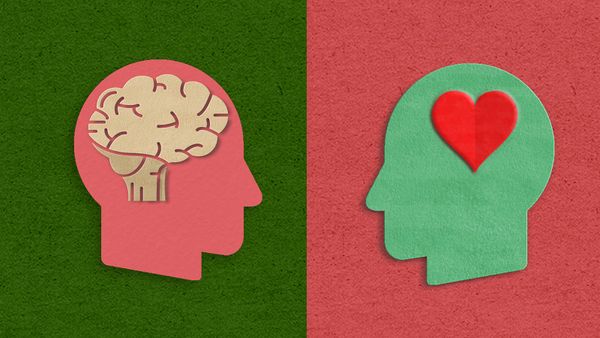
It's no secret that anger doesn't help anyone. Not the fellow motorist you're swearing at. Not the intern you're making cry. Not your kids, who are seeing you lose it. And most of all, not you. Anger has been shown to lead to a higher incidence of heart disease and other health problems. Part of the problem is that we're misinformed about the best way to handle our anger. (By the way, there's a difference between anger, which is frustration at a poor driver, and hostility, which is hoping he runs into the concrete divider.) While you may think that lashing out or hitting a pillow or punching bag helps you release tension, the opposite is true. It teaches you to develop a behavior pattern: Get mad, punch. Get mad, get even. Get mad, harbor stress until it eats away at you like ants on crumbs. Instead, use behavior and mental techniques that have been shown to reduce anger and anxiety, as well as the chronic heart problems associated with them. If you're one of the sixteen million Americans who have anger issues, try these techniques to make a change that we'll all be thankful for:
- Do the Opposite. Research has found that "letting it rip" with anger actually escalates anger and aggression and does nothing to help you (or the person you're angry with) resolve the situation. In general, to cope with an emotion, you have to do the opposite. The opposite of anger isn't to withdraw or lash out, but to develop empathy. So instead of swearing at the guy who cut you off, think that maybe there's a reason he did so — like, he just got a call that his wife is in labor or his mom tripped over his child's toy and can't get up. It helps to remind yourself that few people are jerks on purpose. Getting angry just forces you to justify your actions, so you act out to make sense of how crazily you just acted.
- Find Your Pattern. Keep thought records with no censorship of all the emotions you feel (and why) during the day. This helps you identify and find a pattern in the core beliefs that are associated with your anger. Do you get angry at a lack of respect, or wasted time, or insults?
- Do Push-ups. Somehow, you do have to acknowledge that you are experiencing a physiological response to your anger. Telling yourself to "stay calm" is one of the worst things you can do (second only to being told to "calm down"), because we're supposed to act out when we feel threatened and are angry. So act out in a way that doesn't burn bridges, by doing push-ups or stretching or deep breathing. This dissipates the physiological burden of anger.
- Choose Smart Words. Be careful of words like never or always when talking about yourself or someone else. "This machine never works!" or "You're always forgetting things!" are not only inaccurate, they serve to make you feel that your anger is justified and that there's no way to solve the problem. They also alienate and humiliate people who might otherwise be willing to work with you on a solution. Another important distinction is making sure that you have realistic expectations — and are not blaming yourself for things that aren't under your control, with a string of woulds, coulds, and shoulds.
YOU: Staying Young by Michael F. Roizen, M.D. and Mehmet C. Oz, M.D. Copyright © 2007 by Michael F. Roizen, M.D., and Oz Works LLC, f/s/o Mehmet C. Oz, M.D. Reprinted by permission of Free Press, a Division of Simon and Schuster, Inc.
Advertisement

